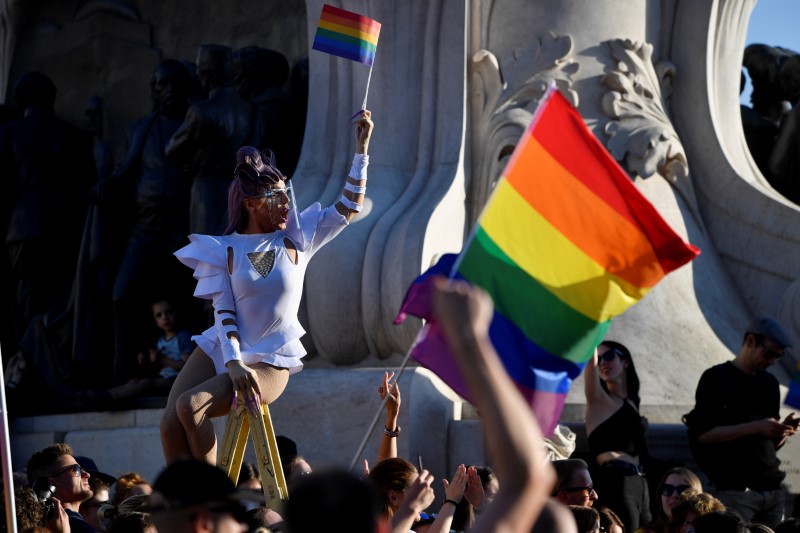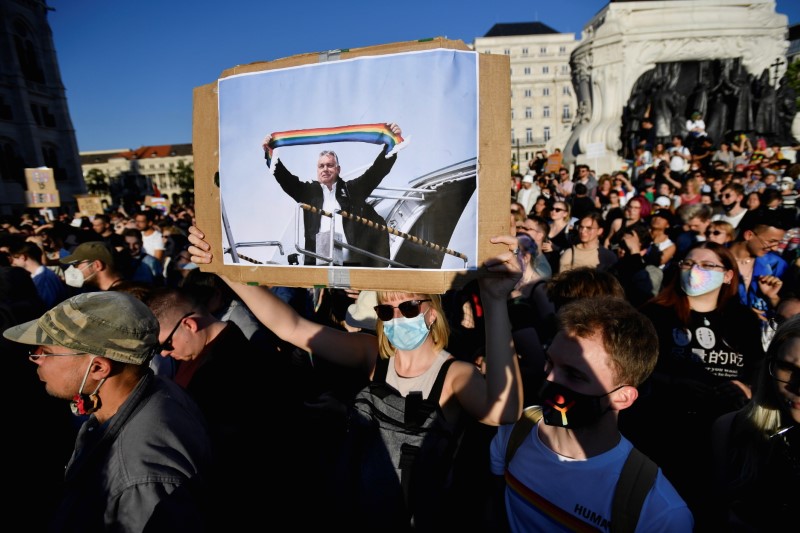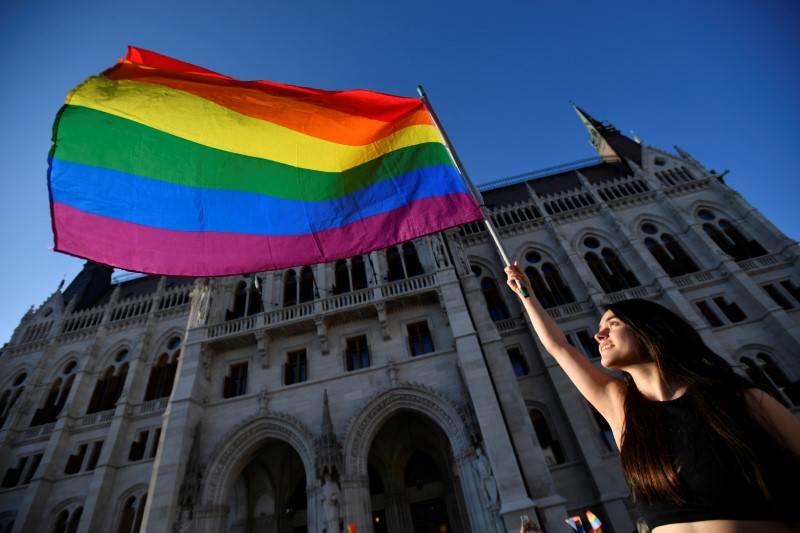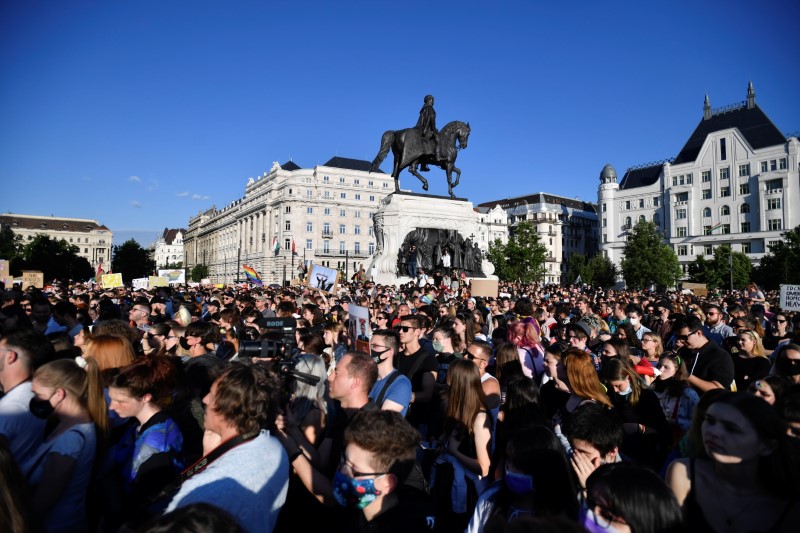BUDAPEST (Reuters) – Thousands of Hungarians protested outside Parliament in Budapest on Monday against legislation that would ban discussions of homosexuality or gender change in schools as Prime Minister Viktor Orban prepares for contested 2022 elections.
Protesters waved the rainbow flag, some visibly agitated.
“This is horrible and inhumane,” said kindergarten assistant Dominika Pandzsa. “They are trying to strip people of all their rights. This would lock some kids in the closet, and they should be given the opportunity to come out.”
Hardline nationalist Orban has grown increasingly radical in his social policy, railing against immigrants and LGBT people in his self-styled illiberal regime, which has deeply divided the central European nation.
The second protest this month after more than a yearlong hiatus due to the coronavirus has shown that Orban is not without an opposition, with six parties banding together to unseat him next year.
Orban’s government has redefined marriage in the constitution as the union between one man and one woman, and limited gay adoption. It also outlawed legal status for transgender people.
The ruling Fidesz party tacked a proposal banning school talks on LGBTQ issues such as gender change to a widely backed separate law that strictly penalises paedophilia, making it difficult for opponents to vote against it.
“Some organisations use these workshops to influence the sexual development of children with so-called sensitizing programmes as part of anti-discrimination campaigns, which can gravely harm their physical, mental and moral development,” ruling party lawmakers said in the amendment.
Rights groups have likened the move to the 2013 Russian law that bans “propaganda” about non-traditional sexual relations.
The Hatter LGBTQ rights group in an open letter at the weekend said MPs should not vote for the bill on Tuesday, noting that the United Nations have called on Hungary to mitigate discrimination against LGBTQ children.
An online petition that declared, “It is evil for politicians to sacrifice children’s lives just to rule public discourse” had garnered more than 83,000 signatures by Monday.
The opposition party Momentum called for a boycott of the Parliament vote, saying the law would endanger the LGBTQ community.
“The Russian template gives us a clear picture of the effect such hatemongering has on a society,” Momentum chairman Andras Fekete-Gyor said in a statement. “Violence against the LGBTQ community is common there, from authorities and compatriots.”
(Additional reporting by Krisztina Fenyo; Editing by Bill Berkrot)

























